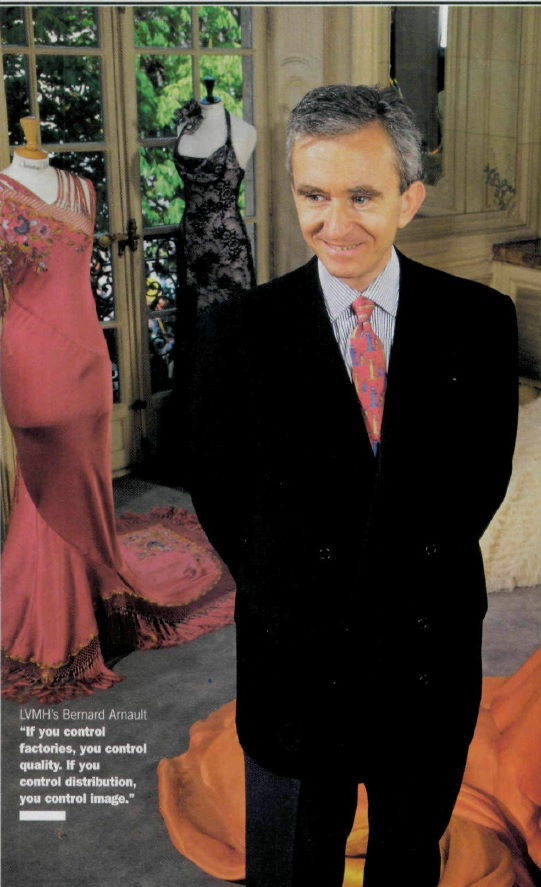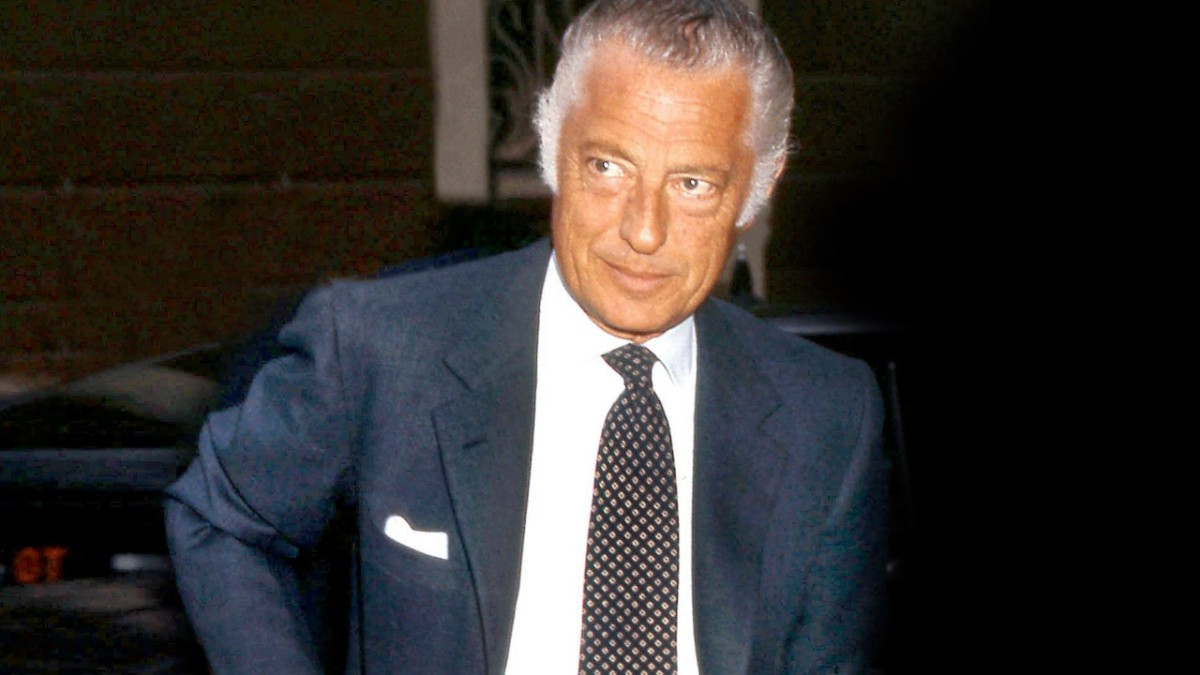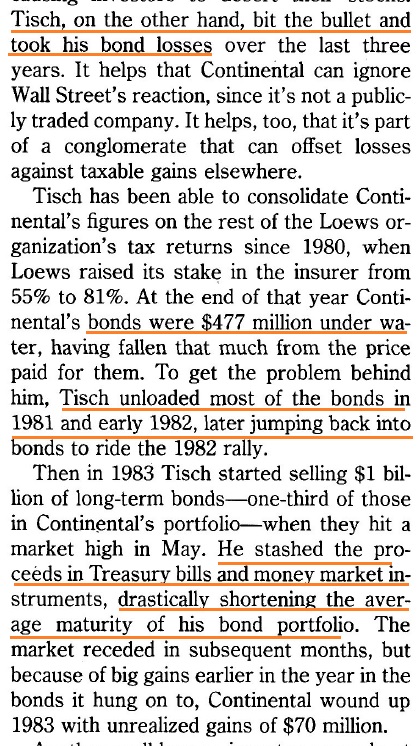
Reading up on Bernard Arnault. Thread with some sources.
"If you control your factories, you control your quality; if you control your distribution, you control your image."
"If you control your factories, you control your quality; if you control your distribution, you control your image."

2019 profile
“after graduating in 1971... An exchange with a New York cab driver planted a seed that would grow into LVMH. Arnault asked the cabbie if he knew of France’s president, Georges Pompidou. “No,” replied the driver, “but I know Christian Dior.”
forbes.com/sites/susanada…
“after graduating in 1971... An exchange with a New York cab driver planted a seed that would grow into LVMH. Arnault asked the cabbie if he knew of France’s president, Georges Pompidou. “No,” replied the driver, “but I know Christian Dior.”
forbes.com/sites/susanada…
1988: "By 1990, we will be the No. 1 name in luxury products in the world.”
Buying Celine: “It has an old image. What people don't know is that Celine has one of the best boutique networks in the Far East. They have more shops at better locations than anybody. It is a network that could not be duplicated today.”
1989 NYT recap of the LVMH takeover, “The Young Wolf Versus the Old Lion.”
“I guess I reached that goal sooner than I expected.”
“In business,'' Arnault says, ''the secret is to seize opportunities.”
nytimes.com/1989/12/17/mag…
“I guess I reached that goal sooner than I expected.”
“In business,'' Arnault says, ''the secret is to seize opportunities.”
nytimes.com/1989/12/17/mag…
1997 Forbes
"People do not understand that success stems from the cohabitation of two contradictory spirits: the artist's vision and the logic of worldwide marketing. It's a very complex process."
"People do not understand that success stems from the cohabitation of two contradictory spirits: the artist's vision and the logic of worldwide marketing. It's a very complex process."

'Arnault came close to declining to be interviewed by FORBES because this reporter used the phrase "democratization of luxury"'
Sold his Long Island home to Kluge whose view it blocked.
Arnault: "It was just incredible! Two days after he bought it, he tore it down! It's so very...American.”
"When something has to be done, do it! In France we are full of good ideas, but we rarely put them into practice."
Arnault: "It was just incredible! Two days after he bought it, he tore it down! It's so very...American.”
"When something has to be done, do it! In France we are full of good ideas, but we rarely put them into practice."
‘Under Racamier, Vuitton had outsourced 70% of its production. Vuitton now owns almost all of its manufacturing and distribution
->"If you control your factories, you control your quality; if you control your distribution, you control your image."
->"If you control your factories, you control your quality; if you control your distribution, you control your image."
LVMH's brands are all run independently, but they support each other in a thousand small ways.
->manufacturing expertise, distribution
->manufacturing expertise, distribution
HBR interview, 2001
“to allow creativity to happen, a company has to be filled with managers who have a certain love of artists and designers—or whatever kind of creative person you have in your company.”
hbr.org/2001/10/the-pe…
“to allow creativity to happen, a company has to be filled with managers who have a certain love of artists and designers—or whatever kind of creative person you have in your company.”
hbr.org/2001/10/the-pe…
"If you deeply appreciate and love what creative people do and how they think, which is usually in unpredictable and irrational ways, then you can start to understand them. And finally, you can see inside their minds and DNA."
Washington Post, 2002.
"The possibility of creating very appealing products with architects, with designers and making it commercially very successful is what I am good at, I think, and what I like to do."
washingtonpost.com/archive/lifest…
"The possibility of creating very appealing products with architects, with designers and making it commercially very successful is what I am good at, I think, and what I like to do."
washingtonpost.com/archive/lifest…
"competitors were telling me a group like this, it is too big. You have several brands -- you should stick to one brand. It will not work, blah, blah, blah. Then they saw it was working. And then they said, 'Okay, now we are going to do the same thing."
"I think, really, they underestimate the difficulty. They underestimate the time required to make it successful. And my guess is that they will have a very tough time."
Anna Wintour, "What I think is so brilliant about Bernard is that he realized that to revitalize this boring, dusty, fuddy-duddy old house, he had to go with the shock of the new. Most businessmen wouldn't understand. They wouldn't have that sensibility and that flair"
Arnault: "I remember seeing a film of Mr. Dior in the '50s. You can't imagine how much he was criticized. …sometimes he was getting eggs [thrown at him] because, you know, he was shocking very much the U.S. woman at the time.”
"Every new idea, in the beginning, is shocking."
"Every new idea, in the beginning, is shocking."
NYT, 2001
“Our strategy is to have some stars-and there are not many in the luxury business. What is a star? It's a name that is the very best. It's a name that is very profitable. But the number of true stars is less than I can count on both of my hands”
nytimes.com/2001/03/25/bus…
“Our strategy is to have some stars-and there are not many in the luxury business. What is a star? It's a name that is the very best. It's a name that is very profitable. But the number of true stars is less than I can count on both of my hands”
nytimes.com/2001/03/25/bus…
"You can't look at the business as a static thing. These brands are moving. Over the next decade, if we can build from the 15 or so other companies that we have one or two new stars, and make them a success, then it's a very good investment.''
''When you cannot differentiate yourself from others with money,'' he says, ''then you must differentiate yourself with something that indicates that you know how to recognize the best.''
nytimes.com/1998/07/12/mag…
nytimes.com/1998/07/12/mag…
"It's very important for a brand to offer the same products in the same setting all around the world. In the 80's it was easy to sell products on the strength of the name alone. Today, it's different. People are more interested in a product's quality and its design.''
"When you run a fashion house, you are looking for a future, not a past. You have to attract a new clientele and take the risk of bringing in some new ideas. So you take the creativity where you find it, and designers, like painters, are more creative when they're in their 30's."
“His approach is not unusual in the M&A game — it’s just unusual in this industry. He acquires brands the Wall Street way, but then he holds them. He thinks in generational terms.”
nytimes.com/2020/10/30/bus…
nytimes.com/2020/10/30/bus…
• • •
Missing some Tweet in this thread? You can try to
force a refresh

















